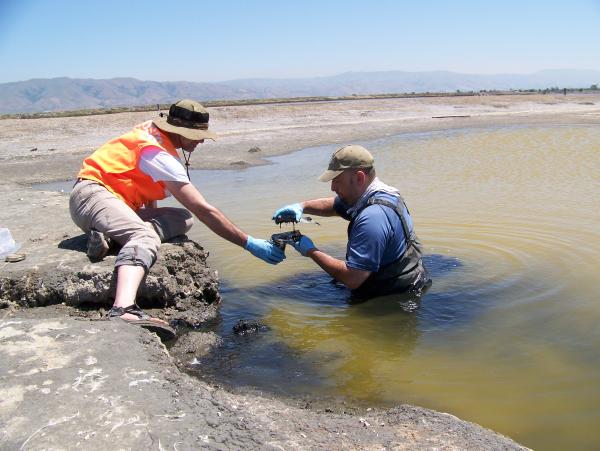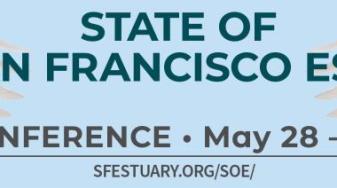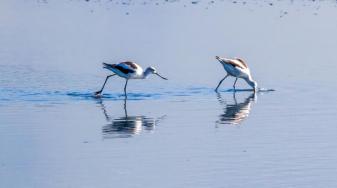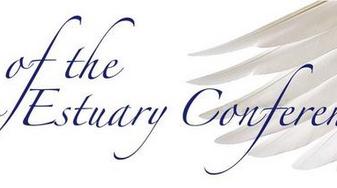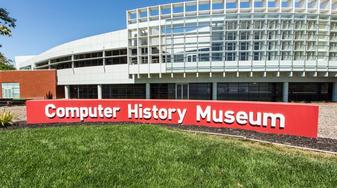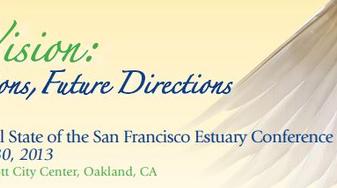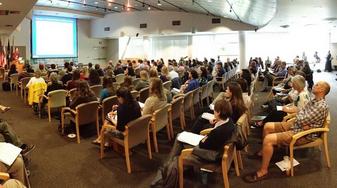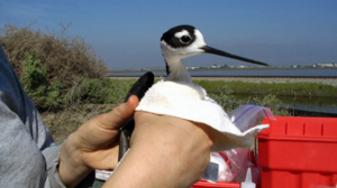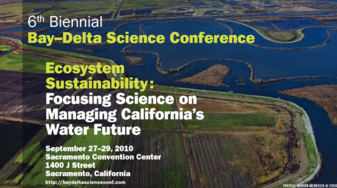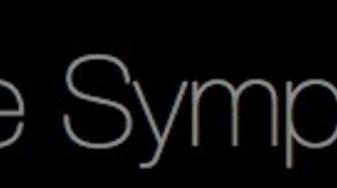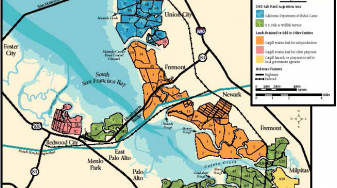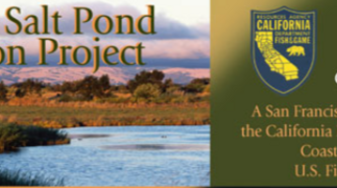About the Science Program
The goal of the Science Program is to bring the best and most relevant science to decision-makers and the public in a timely fashion. The Science Program provides the Restoration Project with a scientific basis for adaptive management decisions and assists with developing restoration targets and measuring Project success.
The cornerstone of the restoration is adaptive management, where science plays a starring role in management decisions. The Science Program coordinates a series of applied studies, modeling, and ongoing monitoring. Researchers inform managers – they investigate major areas of uncertainty that can affect restoration success, and gather data on whether work is meeting restoration targets.
After 15 years of research, much has been learned about these key uncertainties in the restoration process. How well is the restoration progressing to meet its scientific targets? The Phase 1 Science Summary describes our self-evaluation.
The primary work of the Science Program is to implement the Project’s Adaptive Management Plan. The plan helps Project Managers to measure and analyze changes on the ground and fold that new information back into the management process. The process for integrating new information is listed in the Adaptive Management Summary Table, which shows the Project’s integrated approach to understanding how the South Bay ecosystem responds to management changes.
The Science Program and the Lead Scientist receive guidance from the Project Science Technical Advisory Committee (TAC), which reviews Science Program progress; provides advice on restoration/engineering design, research and applied studies; and assists in identifying emerging key uncertainties and management decisions required to keep the project on track toward its restoration objectives.
- Phase 1 Science Summary
- Science Scorecard
- Adaptive Management Plan
- Key Uncertainties & Phase 1 Applied Studies Table
- Science Program Planning Documents
Science Tools & Reports
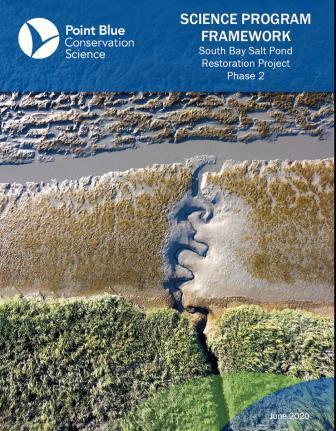
A suite of Phase 2 Science Program tools are designed to ensure our next decade of research and monitoring work builds on what we learned from our first decade of science, as well as the work of other Bay scientists. They include:
- A Phase 2 Science Program Framework to help Project managers identify and respond to the most critical and immediate science needs. The Framework is designed to increase our efficiency in data-gathering and analysis, to inform our work and communicate it to the broader San Francisco Bay restoration community. It establishes a process to clearly drill down on current management and science needs so we can carefully choose Phase 2 monitoring, studies, analysis, and modeling.
- The Climate Change Synthesis provides Restoration Project managers and scientists with an updated understanding of the current science on sea level rise and other effects of climate change as it relates to the Project. It also identifies ways in which the adaptive management approach to the Project may need to adjust in the face of those changes.
- The Phase 2 Science Synthesis updates the status of restoration-related science in the South Bay Area region and beyond. It also notes remaining scientific uncertainties and gaps to help managers identify crucial areas for scientific investigation and data gathering.
The tools were produced in collaboration with a range of scientists, managers and partner agency representatives who shared their knowledge and recommendations at a September 2019 workshop and through several targeted follow-up interviews and focus group sessions. We thank them for their careful consideration and thoughtful input and feedback.
Science Team
Donna Ball is the Restoration Project Lead Scientist.
Other Science Team members:
- Contracted scientists and Project Management Team agencies conduct applied studies and monitoring.
- The Project Technical Advisory Committee provides periodic guidance on the Science Program and adaptive management.
Science Program Contact
Project Science Coordinator
Donna Ball, San Francisco Estuary Institute
(510) 746-7346
Science Events
For a listing of recent and future science related events visit the Related Meetings and Events Section of this page.
External Event Pages
Scientific Reports
A repository of reports, presentations, maps and other documents related to project science, monitoring, and technical issues can be found within our Scientific Reports.
Data Sets
South Bay Salt Ponds offers access to a wide variety of data sets.
Library | Data Catalog | |
|---|---|---|
Legacy data, produced over two decades and included in printed reports, can be found in our Library. | Geospatial datasets can be found in our Data Catalog. |
Science Program Archive
Science Team Planning Phase Summary
Science Team
Biographies
Decision Making Structure
Meetings
Science Team Meeting Agendas
2006 Science Symposium
2006 Social Science Workshop
Social Science Dimensions: Identifying Political, Economic, and Social Obstacles and Opportunities (April 18, 2006)
The purpose of this workshop was to identify the most important political, economic, and social opportunities and obstacles in planning, implementing, and sustaining/maintaining salt pond restoration in the South Bay.
- Workshop Summary (PDF)
- Welcome to Social Science Dimensions Workshop (PDF)
- Overview on Challenges and Solutions During the Planning Process (PDF)
- Overview on Community Involvement and Opposition (PDF)
- Historical and Cultural Resources (PDF)
- Reaching the Voters on Funding (PDF)
- Overview on Urban/Economic Growth and Impacts on the Environment (PDF)
- Workshop Agenda (PDF)
- More information and directions (PDF)
Techincal Workshops
- Sediment Workshop 1 (December 2004; PDF)
- Sediment Workshop 2 (March 18, 2005; PDF)
- Bird Workshop 1 (March 11, 2005; PDF)
- Bird Workshop 2 (May 23, 2005; PDF)
- Fish Workshop (May 20, 2005; PDF)
- Pond Workshop 1 (August 17, 2005; PDF)
2003 Datagaps Workshop
Documents
- Science Team Two-year Summary (June 2006, PDF)
- Science Team Charter 2005 (PDF)
- Draft Adaptive Management Plan (October 2005, PDF)
- Science Syntheses of Critical Issues
- Issue 1 & 3—Landscape and Marshes (October 2004; PDF)
- Issue 2—Sediment Management (February 14, 2005; PDF)
- Issue 5—Migratory Birds (PDF)
- Issue 6—Hydrological Modifications (PDF)
- Issue 7—Pollutants (PDF)
- Issue 8—Invasive Species (May 12, 2005; PDF)
- Issue 9—Public Access & Wildlife (May 15, 2005; PDF)
- Issue 10—Infrastructure (November 12, 2004; PDF)
National Science Panel
Biographies
Meeting materials
Downloads—October 2008 RFP
2008 RFP Awards for Phase 1 Selected Monitoring and Applied Studies
The proposals below were accepted by the SBSP project following a peer review selection process. Project start dates vary depending on the availability of funding and the Phase I restoration schedule.
Topic 1: Measuring Habitat Evolution Utilizing Satellite Imagery
Successful proposal by B. Fulfrost, Design, Community & Environment
Topic 2: Assessment of Mercury Bioavailability Utilizing Sentinel Species
Successful proposal by C. Eagles-Smith, USGS
Topic 3: Waterbird Nesting and Foraging in Managed Ponds
Successful proposal by J. Ackerman, USGS
Topic 4: Waterbird Response to Trail Use
Successful proposal by L. Trulio, SJSU
Topic 5: Pond, Slough, and Bay Water Quality Interactions
Successful proposal by J. Thompson, USGS
Topic 6: Baseline Bird Data and Data Needs Assessment
Successful proposal by M. Herzog, PRBO
Topic 7: Effects of Restoration on Fish Assemblages
Successful proposal by J. Hobbs, UC Davis
Topic 8: California Gull Displacement Study
Successful proposal by J. Ackerman, USGS
Topic 9: Open Call for Graduate Fellows
Successful proposals by N. Athearn, UCD/USGS; C. Overton, UCD/USGS; and A. Rowan, SFSU
Directed Study
Successful proposal by J. Callaway, USF

